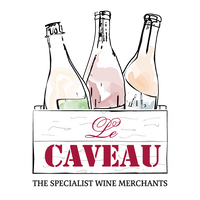100% Pinot Noir - Dosage : 3 gr/L (extra-brut) – Rosé de saignée – 3 days of maceration – Tank aging – Malolactic fermentation – Sur lattes : 4 years
Les Protelles rosé is Pinot Noir produced from three days maceration. This highlights the traditional winemaking style of this rosé, based on familial and local tradition. The wine is dosed to Extra Brut with 3g/l and is marked by flavours of red berries and toast.
CHAMPAGNE PIOLLOT, Roland Piollot, Polisot
Biodynamic certified by Demeter
Champagne Piollot is produced by Roland Piollot and his wife Dominique Moreau (Champagne Marie Courtin) from family-owned vines in the Aube. The vineyards are located primarily in the town of Polisot, where the family has had strong roots since the early 20th century. In 1911, Roland’s great-grandfather was one of the leaders of the famous Aube revolt, which ensured that the Aube would remain an official part of Champagne. As of 2018, Roland and Dominique have been joined by their daughter, Jeanne.
Roland's father was extremely passionate about vineyard work and replanted all of his vineyards using the selection massale method (he even kept some of the old Pinot Blanc vineyards that most of his neighbors were replanting to Pinot Noir or Chardonnay). In 1986, Roland decided to bottle the wines himself, and in
2009, he converted all 10 hectares of vineyards to organic farming. Essentially overnight, the Piollot’s production was radically changed. Rather than using the standard recipe of “Brut, Rosé, and Vintage,” the family decided to lead with three single- vineyard cuvées made from a single variety: Pinot Noir (Côme des Tallants), Champs Rayées (Chardonnay), and the hometown favorite Pinot Blanc (Colas Robin). Since the conversion to organic farming, the Piollots have continued to find ways to improve their stewardship of the land, and in 2020, they obtained biodynamic certification for all of their vineyards. The still wines are all vinified with native yeasts and are mostly aged in steel tanks, though a bit of the base wine does go into barrels and foudres. Their rosé is produced in years where the Pinot Noir shows especially great quality, and occasional micro-cuvées also appear from time to time. Bottles are kept on the lees for four to six years (!) and are then disgorged with no dosage, except their rosé which receives 3g/l dosage.




